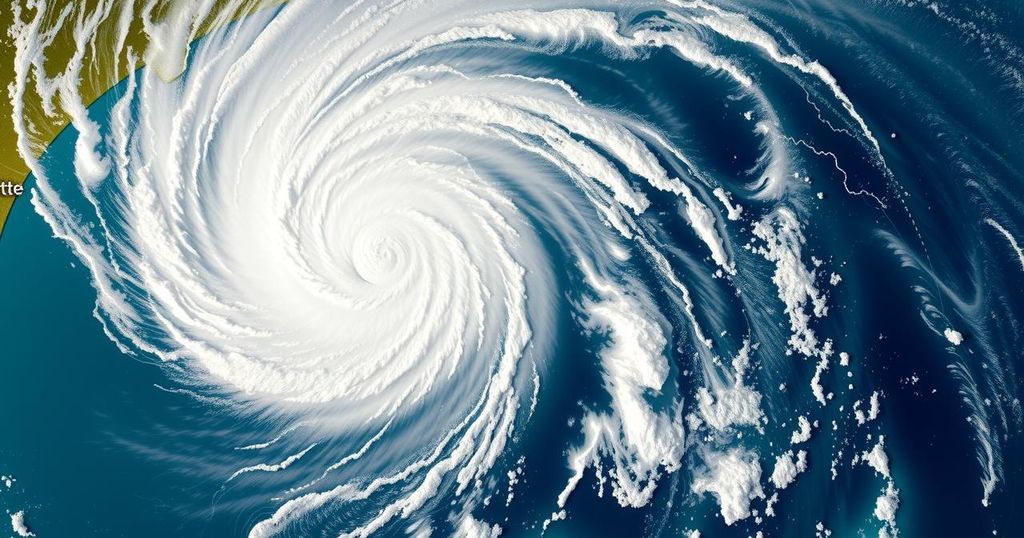Tropical Cyclone Chido: A Historic Storm Strikes Agalega, Heads Towards Mayotte and Mozambique

Tropical Cyclone Chido made landfall on Agalega as the strongest cyclone in 50 years, with rapid intensification leading to winds up to 222 km/h. The cyclone is moving toward Madagascar and Mozambique, bringing severe weather conditions including heavy rain and strong winds. Mayotte is on cyclone alert, while the cyclone is expected to weaken but remain a strong storm upon reaching land.
On December 12, 2024, Tropical Cyclone Chido struck Agalega, becoming the most powerful cyclone to impact the island in over fifty years. The cyclone developed in the Southwest Indian Ocean and underwent rapid intensification, with winds escalating from 111 km/h (69 mph) to 222 km/h (138 mph) within the span of a day. As it moved toward Mayotte and Mozambique, Chido made landfall as a category four-equivalent storm, marking a significant weather event since Cyclone Andry in 1983. The cyclone is projected to affect Madagascar and neighboring regions with heavy rainfall and strong winds.
Chido formed on December 10, 2024, as the third named storm of the 2024/25 cyclone season in the Southwest Indian Ocean. It rapidly intensified to reach maximum sustained winds of 215 km/h (135 mph), with gusts up to 295 km/h (185 mph). After impacting Agalega, with its limited population of 330, the storm is anticipated to brush past northern Madagascar and approach Mayotte, with potential landfall near Nacala, Mozambique, on December 15.
The current trajectory suggests significant weather deterioration in Madagascar, including heavy rain and strong winds, while Mayotte has been placed on cyclone pre-alert status. The threat extends to the Comoros, where strong winds and rain are also expected. Given the uncertainties surrounding the cyclone’s path, residents are encouraged to monitor updates from official meteorological services.
Tropical cyclones represent a serious hazard in the Indian Ocean, particularly during the cyclone season from November to April. The occurrence of severe storms like Chido is influenced by various meteorological factors, including ocean temperatures and atmospheric stability. Historically, cyclones have caused significant disruptions in island nations, particularly in terms of infrastructure and human safety. Understanding the trends in cyclonic activity helps in preparedness and issuing timely warnings to affected regions, thereby mitigating potential damage.
Tropical Cyclone Chido represents a formidable weather event, being the strongest to impact Agalega in over five decades. As it continues its path towards Madagascar and Mozambique, it poses serious risks of heavy rainfall and destructive winds. It is essential for residents in affected areas to stay informed and adhere to safety advisories from meteorological authorities. The unfolding situation highlights the importance of preparedness in the face of extreme weather phenomena.
Original Source: watchers.news







